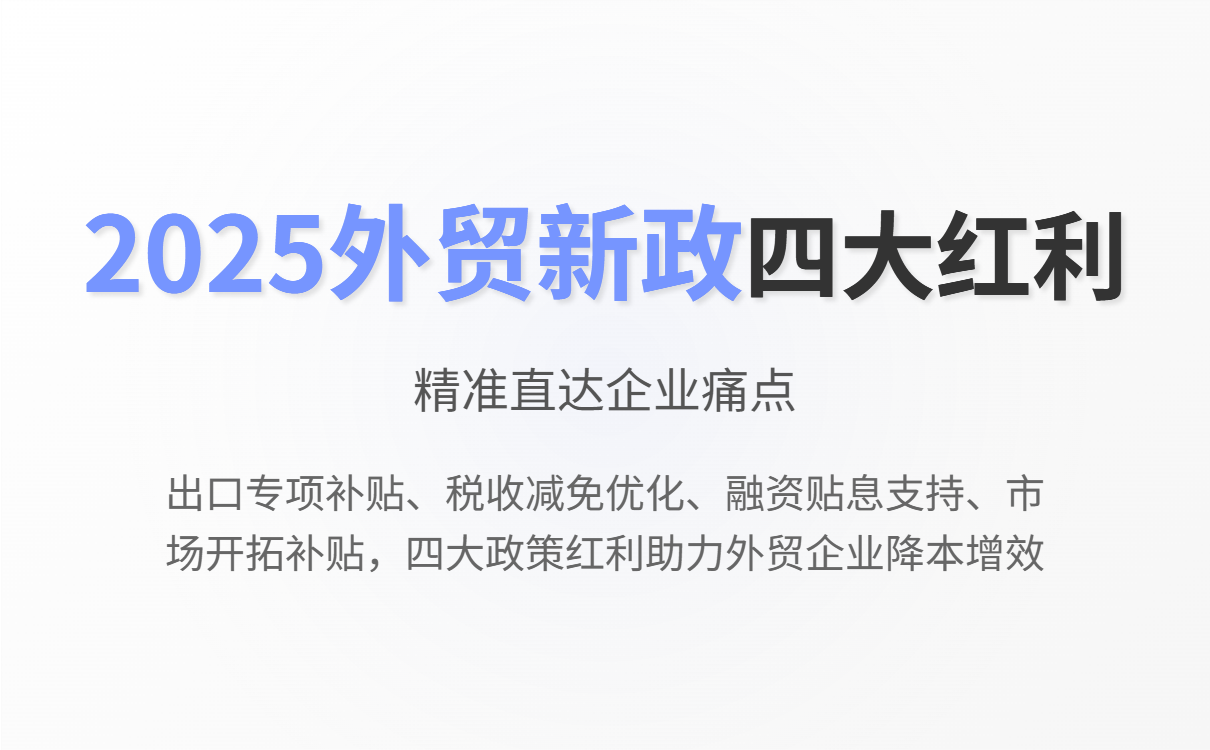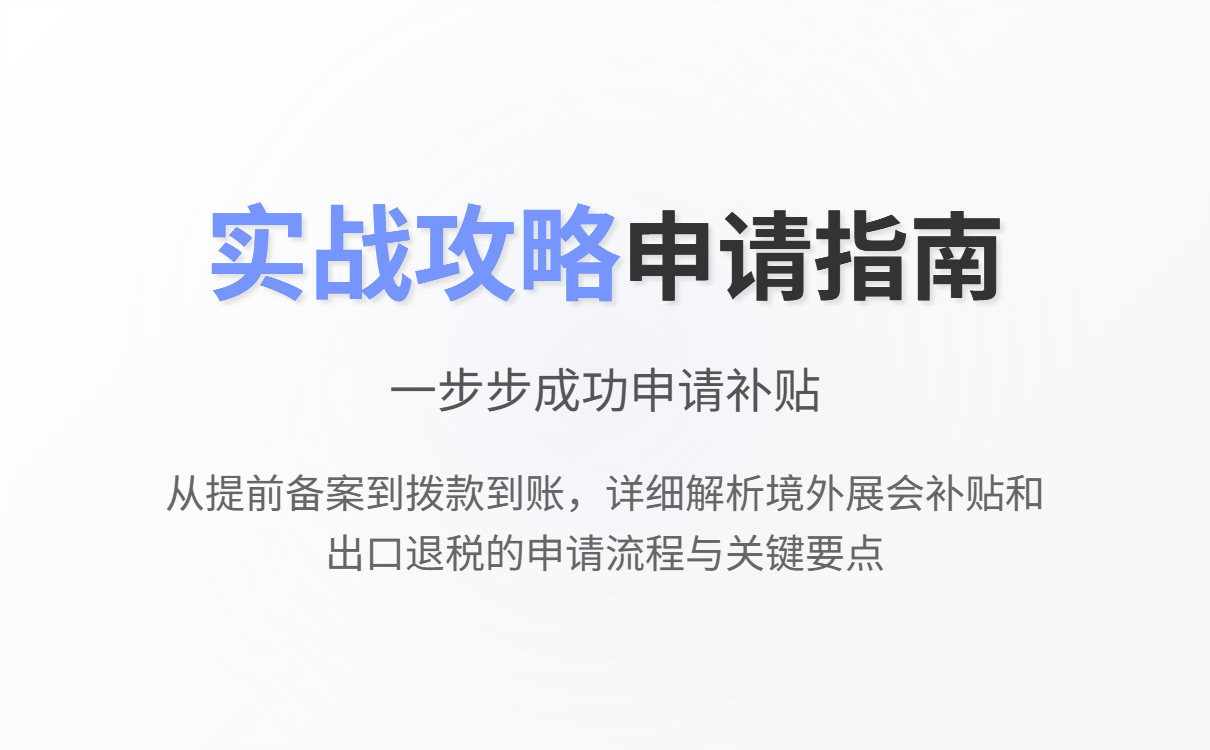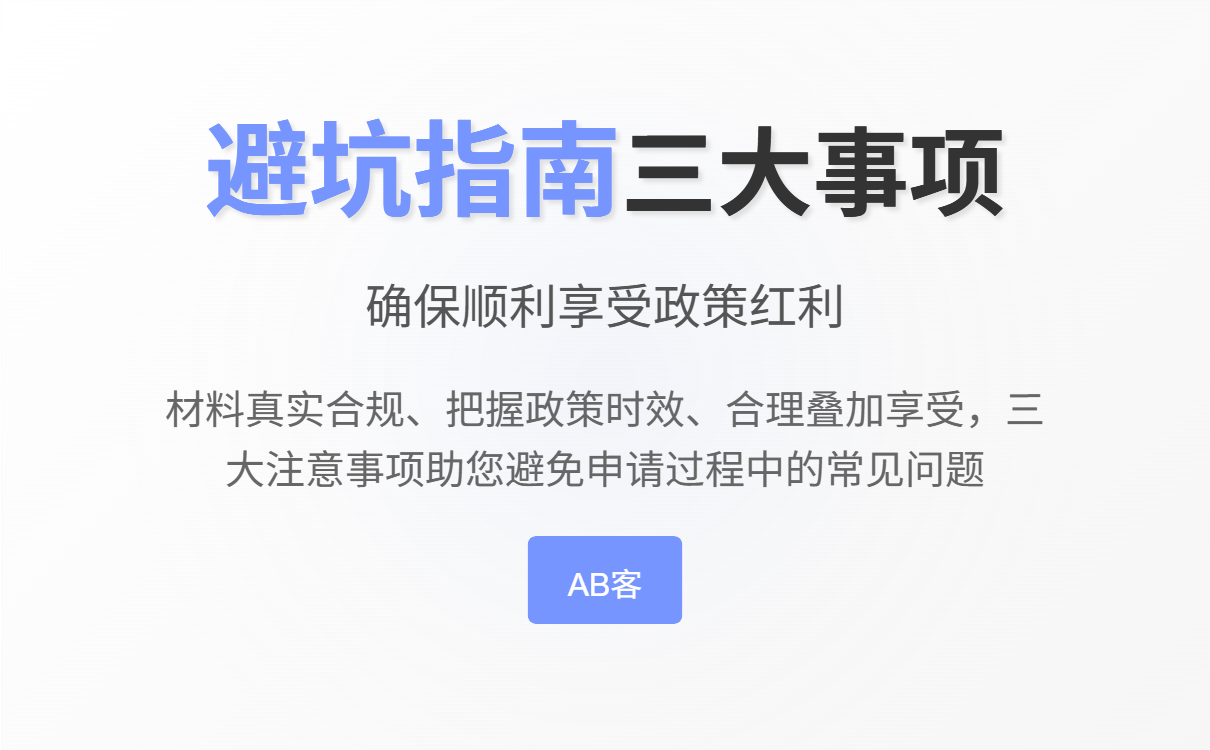 400-076-6558智领未来,外贸超级营销员
400-076-6558智领未来,外贸超级营销员
 400-076-6558智领未来,外贸超级营销员
400-076-6558智领未来,外贸超级营销员
As the global trade environment becomes increasingly complex, cost reduction and efficiency improvement have become key strategies for foreign trade companies seeking stable growth. By 2025, China's national and local commerce departments were intensively launching four core foreign trade bonus policies, specifically designed to support the development of export companies with the goals of "cost reduction, market expansion, and supply chain stability." This article will provide you with policy highlights and practical strategies to help you easily seize these policy benefits and enhance your company's international competitiveness.
| Policy Category | Core Content | Highlights |
|---|---|---|
| Special export subsidies | Export subsidies for electromechanical equipment, high-tech and green products | The maximum subsidy for a single enterprise can reach 500,000 yuan, and some regions will add an additional 20%-30%. |
| Tax deduction optimization | Export tax rebates are now available on a "refundable upon reporting" basis, with more than 200 new categories of goods now covered. | The tax refund period is shortened to 1-3 working days, and the tax exemption quota for small and micro enterprises is increased. |
| Financing interest subsidy support | Loan interest subsidy 2%-3% | Effectively alleviate the problem of "difficult and expensive financing" |
| Market development subsidies | Subsidies for overseas exhibitions, overseas advertising, and international certifications are up to 50% | Help companies explore emerging overseas markets and build international brands |
The 2025 foreign trade policy, combining export-oriented industries with emerging fields, has formed a more focused, rapid and efficient support system, greatly enhancing the risk resistance and market development capabilities of enterprises.
Taking the two popular policies of "Overseas Exhibition Subsidy" and "Export Tax Rebate" as examples, the following detailed steps will help you complete the declaration efficiently and in compliance with regulations:

Becoming a Class I or Class II export tax rebate enterprise is the key to accelerating tax refunds. Enterprises should focus on tax credit and customs integrity evaluation, strictly check the information on customs declarations, value-added tax invoices and collection documents, and avoid delays caused by data discrepancies.
Standardizing business processes and document management with the help of professional CRM systems (such as AB Customer Intelligent Foreign Trade CRM/CEM) can effectively prevent declaration errors caused by human omissions and ensure the realization of the goal of "immediate tax refund upon declaration".

Although the policy is good, the implementation process is often complicated and opportunities are missed. AB Customer Intelligent Foreign Trade CRM/CEM System is specially designed for foreign trade enterprises:

.png?x-oss-process=image/resize,h_100,m_lfit/format,webp)
.png?x-oss-process=image/resize,h_100,m_lfit/format,webp)

.png?x-oss-process=image/resize,h_100,m_lfit/format,webp)
.png?x-oss-process=image/resize,h_100,m_lfit/format,webp)
.png?x-oss-process=image/resize,h_100,m_lfit/format,webp)
.png?x-oss-process=image/resize,h_100,m_lfit/format,webp)
